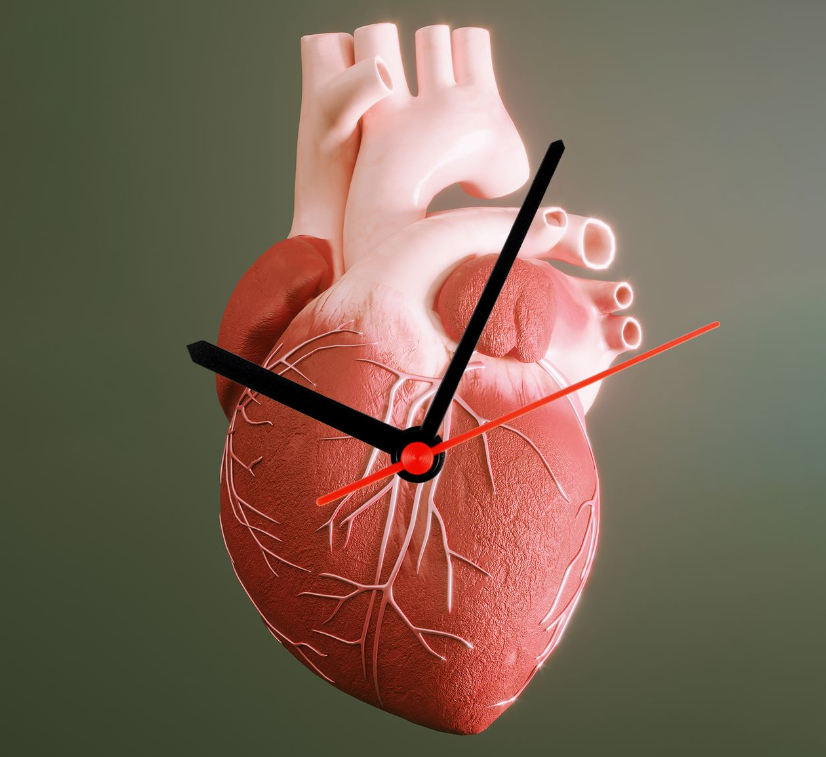
By Alex Janin
May 13, 2024
Do you know how old your heart is? And does it even matter?
More online calculators, wearable devices and medical tests are attempting to estimate your heart’s age. The companies and organizations behind the tools say that having insight into your heart health can prompt you to make lifestyle changes to help stave off cardiovascular disease down the road.

ILLUSTRATION: ELENA SCOTTI/THE WALL STREET JOURNAL, GETTY IMAGES (2)
It’s an extension of our newfound obsession with “biological age,” the concept that your body, or parts of it, can be physically aging faster or slower than your actual age. And that by knowing those ages, you can take control to live longer and healthier.
As for the heart, scientists say the tools can be a helpful jumping-off point for conversations with doctors about habit changes or medications before heart disease sets in.
But you should take the results with a grain of salt, doctors and researchers say. The age calculations tend to be imprecise and don’t capture all of your possible risk factors, such as family history, air pollution, pregnancy complications or genetic variations.
“It’s pretending to quantify something for you specifically that is just directionally true,” says Dr. Gregory Katz, a cardiologist at NYU Langone Heart. “It’s based on a true story, but it’s not actually a true story.”
How the tools work
There are a few online calculators, including ones from health organizations such as the U.K.’s National Health Service, Australia’s Heart Foundation, and the Framingham Heart Study.
They ask people to enter metrics such as their chronological age, sex, body-mass index, blood pressure and cholesterol levels. They then use different statistical models to compare your data against the average and give you an age estimate.
A saliva-based biological-age test from Elysium Health gives an overall age estimate and organ-specific scores, including for the heart. Novos Labs, another company offering a biological-age test, says it plans to add a heart-age component to its blood test later this year.
The Oura ring, a wearable sleep and activity tracker, will soon offer a feature that estimates users’ cardiovascular age. It uses a sensor to measure blood flow to assess how stiff the arteries are. Arterial stiffness increases with age and is linked to an increased risk of heart disease and death. The age calculation refreshes daily based on weekly averages.
People with a heart age estimated at six years or older than their chronological age may see messages in the app encouraging them to move more, or with other suggestions about stress, sleep or nutrition, the company says.
Different heart-age tools are likely to give the same person different results. Some offer users personalized recommendations about how to reduce their risk of heart disease, such as losing weight, cutting back on salt and getting more exercise.
How useful are heart-age tools?
Traditionally, more doctors have relied on risk calculators as indicators of a person’s risk for heart disease. They can be more complex than the heart-age calculators and harder for nondoctors to interpret. Risk calculators give you a risk score over a period of time, rather than an age. For example, a patient might be told their risk of cardiovascular disease in the next 10 years or over their lifetime is 35%.
Some doctors think that the evolving concept of heart age could be a more straightforward, actionable way of talking to patients about their health. A 50-year-old who receives an estimated heart age of 56, for example, might see it as a wake-up call to focus on healthier habits or as a spark for discussion with a doctor about cholesterol-lowering medications, such as statins.
When patients bring heart-age results to appointments, it can be a helpful jumping-off point for a broader discussion, says Dr. Samuel Kim, director of preventive cardiology at Weill Cornell Medicine.
“When you detect heart disease at an earlier stage and treat it aggressively, you’re probably going to have more likelihood of reversal of things like plaque,” Kim says, adding that the calculators are most helpful for people in middle age or older.
Other health experts worry that heart-age predictions could have the opposite effect, causing more anxiety and prompting patients to avoid the doctor in case they get more bad news.
Australian researchers who conducted a review of studies about heart age found there was limited evidence for using heart age over percentage risk, though some studies did show heart age was effective at motivating people to make lifestyle changes when combined with other strategies.
“Your chronological age is probably a more reliable indicator of health risks than current measures of biological age,” said Carissa Bonner, a behavioral scientist, associate professor at the University of Sydney and co-author of the review study.
Heart-age tests in the pipeline
Researchers are also studying more-precise measures of heart age through medical imaging, such as echocardiograms and MRIs.
South Korean researchers developed an AI model to predict heart age based on EKG data, which they say will be available in clinics in that country this year. A study of the method in more than 226,000 adults found people whose heart age was estimated at six or more years older than their chronological age had higher rates of death and major cardiovascular events than those at the same or lower.
These models are likely a ways off from becoming a standard part of preventive care. The U.S. Preventive Services Task Force, a medical advisory panel whose recommendations are widely followed by doctors and insurers, recommends against screening low-risk adults with EKGs to prevent cardiovascular disease. (The task force recommends screening for hypertension via blood pressure checks in all adults.)
The American Heart Association and American College of Cardiology recommend using risk calculators for cardiovascular-disease prevention. The ACC says it is researching a heart age calculator of its own.
Write to Alex Janin at alex.janin@wsj.com
Dow Jones & Company, Inc.



